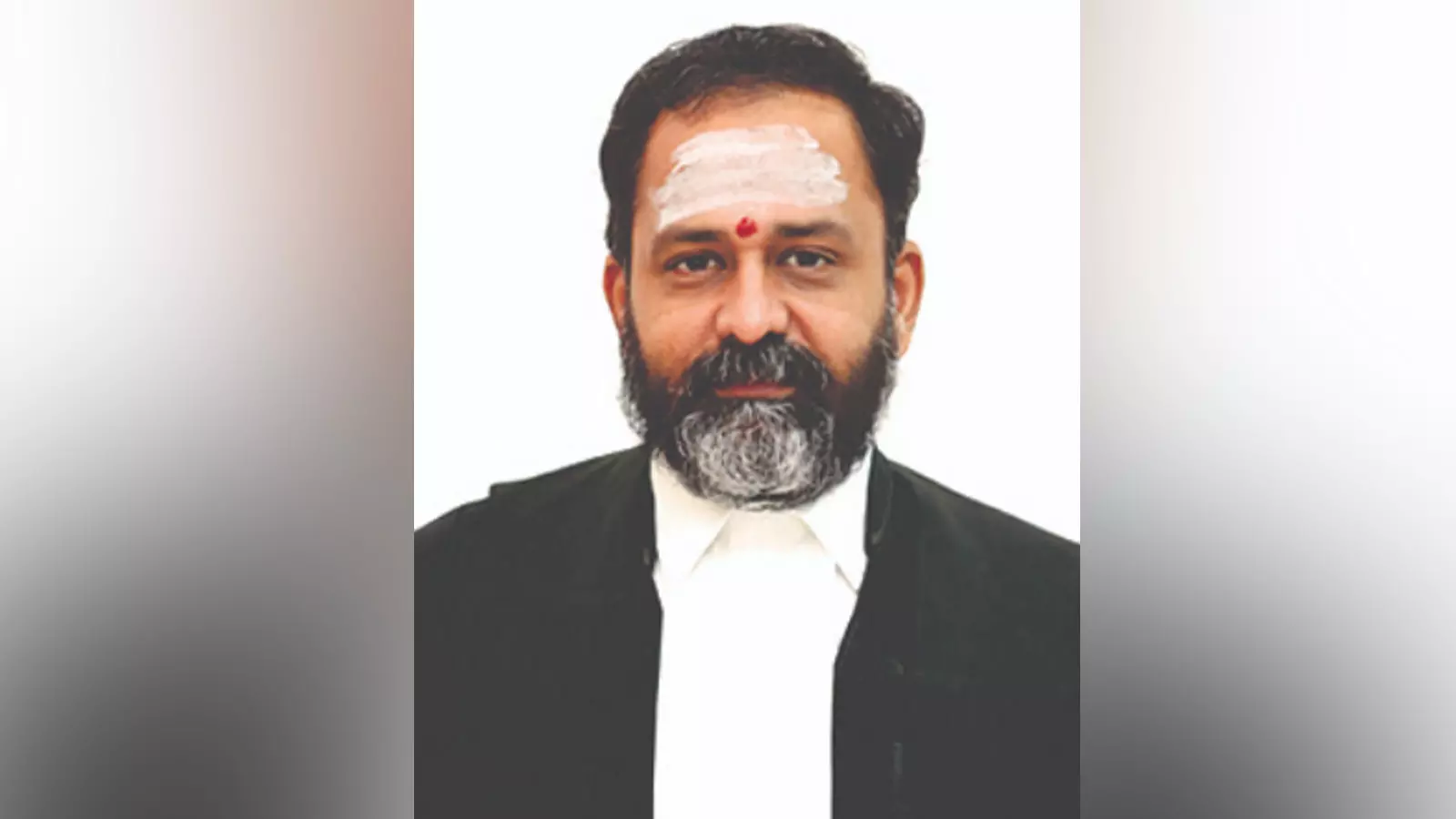
Madras HC controversy: Can a judge hear a case against self? What experts say
A row erupted when Justice GR Swaminathan presided over a matter in which criminal contempt proceedings were initiated against advocate S Vanchinathan

A recent courtroom episode at the Madurai Bench of the Madras High Court has triggered a legal and ethical debate: Can a judge hear a case in which allegations have been made directly against him?
The controversy erupted when Justice GR Swaminathan presided over a matter in which criminal contempt proceedings were initiated against advocate S Vanchinathan.
Also read: Madras HC judge hears case against self, calls advocate ‘comedy piece’
The contempt charge was based on allegations made by the advocate against the judge himself, including claims of caste bias and criticism of the judge’s ideological leanings in public forums. The judge not only heard the matter but also summoned the lawyer, leading to heated exchanges in the open courtroom.
What legal experts say
The Federal spoke to legal experts, former judges and practising advocates on whether contempt cases could be handled by the judge himself or not.
Also read: Madras HC pans Chennai police for ‘lapses’ in Armstrong murder probe
Former Madras High Court judge Justice K Chandru said that contempt matters are often routed to the judge concerned, particularly if it's about undermining their authority in the courtroom. But this does not automatically justify them adjudicating it themselves.
“No man can be a judge in his own cause. If an advocate or anyone is disturbing the courtroom proceedings and disobeying the court, judge can very well immediately summon the person and pass orders. But when it is about a matter connected to instances that occurred outside his courtroom, then he cannot take advantage of the option,” said Chandru.
Explaining the difference between civil and criminal contempt, he said, civil contempt refers to the wilful disobedience of court orders. Whereas, criminal contempt, which includes public statements or acts that scandalise or lower the authority of the judiciary, must be taken up through a due process.
Also read: TN minister has ‘no idea’ about court-mandated shield for inter-caste couples
“In the case of Justice G R Swaminathan, he had summoned the advocate in a case where he is not relevant. The judge even cited instances that happened outside the court premises and asked the advocate about YouTube interviews, WhatsApp messages, and political groups. All of these should have first been formally scrutinised before turning into court proceedings. What seems to be happening here is emotional action, not legal process,” Chandru explained.
‘Deeply disturbing’
Henri Tiphagne, a veteran human rights defender and senior advocate at the Madurai Bench of the Madras High Court said that the court’s handling of the matter was “deeply disturbing”.
“Justice Swaminathan had, in the past, delivered progressive rulings on protest rights and vulnerable communities. But, this does not insulate a judge from criticism over perceived ideological bias,” Tiphagne said.
Recalling how “harsh and rude words” were uttered in open court, Tiphagne said, “Twice the judge used harsh words about a solidarity meeting for the advocate Vanchinathan organised in Madurai. The meeting was attended by former judge Justice Hari Paranthaman. We could not accept that the judge even called that gathering as contemptuous, we were disturbed by his observations.”
He said that criminal contempt law is being increasingly used to silence ideological disagreement which would be a slippery slope for any democracy.
“Since the matter has now reportedly been escalated to the Chief Justice of India, the legal fraternity is closely watching the next steps, not just for their implications in this case, but for the broader question of how India’s courts handle ideological dissent, criticism, and internal accountability,” said Tiphagne.

